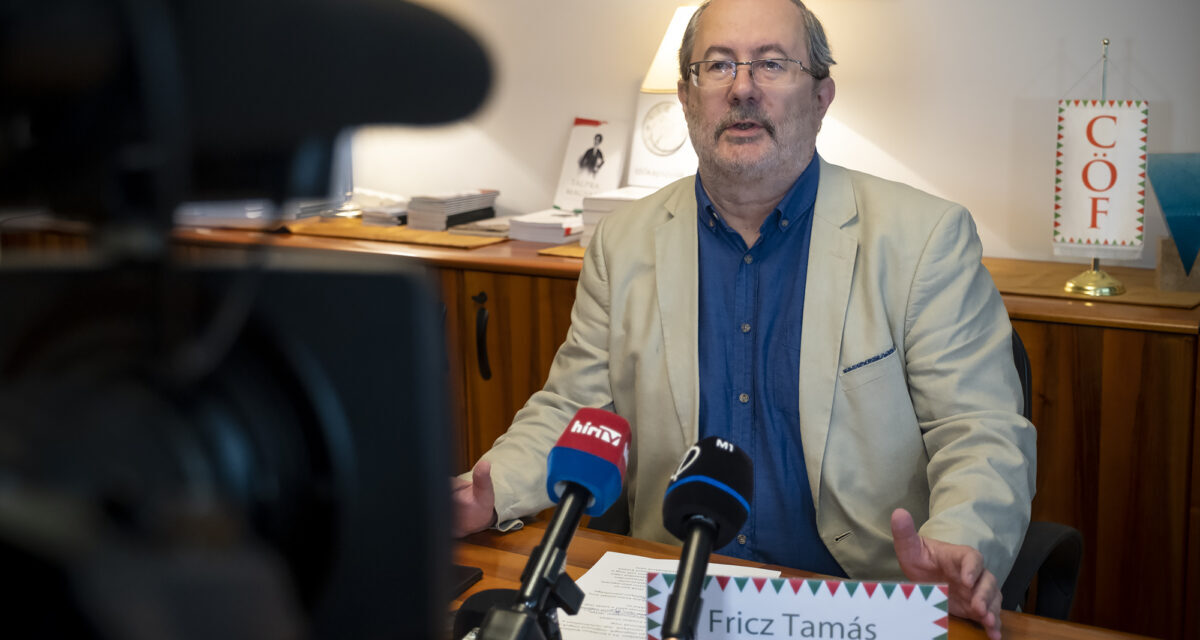The decisions of Brussels are determined by America's deep state and the global elite behind it.
If the public opinion polls are to be believed, then in April 2026 a fierce fight between the Fidesz-KDNP and the Tisza Party is conceivable. And then the question must be asked, still in time: how to proceed, governing parties? In my opinion, in order to protect the potentially endangered power, three types of directions can be assumed for the next period.
One of them is the continuous attack, defamation, and discrediting of the leader and leaders of the new political opponent – the Tisza Party.
All the more so, because Péter Magyar's personality can really be attacked, and rightfully so, and he has given plenty of opportunity to do so. He is an aggressive, short-tempered person who has difficulty controlling himself - perhaps this is his real Achilles heel. This tactic can come in handy, the essence of which is to attack the opponent.
But there is another solution. It is nothing but total concentration on governance. Increasing one's own performance and efficiency, eliminating errors, increasing economic efficiency.
There are still plenty of opportunities in this. If governance - especially economic governance - is good, even very good, then people do not want to change the person in government, the composition of the government. Why would they? Because we must not forget: "It's the economy, stupid" - as James Carville, a former member of the Bill Clinton campaign staff, told his colleagues, who did not understand that victory cannot be achieved without economic success (by the way, he also highlighted health care).
Once again: of course, attacking the opponent is also an option that a government should and can use.
This is totally legit. However, the real question is which one is the focus. In my opinion, the emphasis should be on one's own performance, and on the government side presenting it to the people in an understandable and tangible way.
However, there is a third aspect that I would like to highlight. In recent years, the government's anti-migration, pro-peace, family-centeredness and decisive action against the LGBTQ movement have had an incredibly strong impact on the majority of Hungarian people. But it must also be seen that these topics are no longer new, they do not cause a kind of "Eureka!" experience in the electorate, the national-sovereignist voters are almost already used to the fact that the Orbán government speaks out against them in every forum and every time, and does everything that can be done within the framework of the EU, dancing in a knot, war, gender theory and against illegal migration.
Presumably, there should also be a new topic that would once again show the voters that the government fights for its rights in a multifaceted way, not only within the country, but also outside the country, in such a way that it always protects the interests of the Hungarian people. I won't bother you any longer, I'll say it: the European Union is the one with which something must be done.
For the Hungarian people, this is not a distant, "Who cares?" topic, since for years now the government has been loudly and increasingly presenting to the Hungarian public the brutal manner in which the Brussels elite is attacking Hungary, the immoral, immoral and now illegal means they are trying to keep our country in such a disadvantageous position, which is now financially can also cause enormous damage in terms of the budget, the economy, wages, living standards, education, healthcare and social security.
In the past period, the Hungarian people learned that Brussels, or more specifically the Brussels elite that controls the EU, is not their friend.
Condemning decisions, breach of duty proceedings and now court judgments are constant, which try to rob us of incredible sums. Of course, the real reason for this is that we - with a few politicians, parties, governments and recently by creating the Patriots' Association - are resisting the pressure, mainly from Western Europe, during which they want to force us to participate in the war, to accept migration and to the miscegenation of Europe, the breakdown of the traditional family, green ideology, and many other things, including the supranational power of the WHO.
Based on this, I think that the new topic could not be any other - more precisely, I think it would be one of the best new topics - than reforming the union.
I know that we have done everything to protect the sovereignty of our country, and in fact we have done perhaps the most in all of Europe for a union based on sovereign states. At the same time, I think that - using our current six-month presidency - we should initiate a kind of renewal of the union, placing it on new foundations.
At the moment, the union is on the verge of falling apart and disintegrating. In its current state, the union is not capable of sound decisions on almost any issue, which would of course represent the interests of the member states and European states.
It is now completely clear that the decisions of Brussels are determined by America's deep state and behind it the global elite from the background, and even today not so much from the background, but from the foreground (think of the Soros network or the World Economic Forum, WEF).
We don't have to think about anything other than Germany's desperate decision to re-introduce strict border controls at the borders of all neighboring states, and of course Brussels has nothing to say about this. If Germany decides this way, the other countries will follow, and then the Schengen system, which is one of the most important achievements of the union, the free flow of goods, services, labor and capital, will be over. What did Orbán and others in the government say? "All this could tear the union apart" - and I would add, not only that, but this is just another icing on the cake, pointing towards disintegration.
What and how will competitiveness improve here? The opposite appears to be the case: deterioration, complete lagging behind the other great powers of the world.
That is why the government should initiate - also in our own interest - the content and institutional renewal of the union, new cooperation between the parties. So that the union remains and remains strong, and does not fall apart permanently. Because it's close to that.
What does content renewal mean?
That cooperation should be strictly limited to mutually beneficial economic and commercial relations, they should be expanded and made more efficient. Just for the sake of competitiveness.
And precisely in order to focus on the economy, mandatory cooperation in other areas should simply be abolished, and especially the fact that the committee with federal ambitions, which imagines itself as a government, wants to determine that the member states are responsible for cultural, educational, family policy, social, civil society, environmental protection, etc. . questions about how and what they do in their own homes.
Let there be a relaxed common market that operates on the basis of the win-win principle in the field of economic cooperation, thus giving itself a chance to dance back from the brink of bankruptcy.
This requires institutional changes.
In telegraphic style: the European Council should be in the hands of the real management, the committee should not be a "government", but a simple office of the council, which implements the decisions made by consensus in the council, and the members of the parliament are again delegated by the national parliaments (this was how it worked until 1979 !), and operate on a national basis, smashing the current political-ideological control of the globalists over the entire board. And finally, although it seems sacrilegious, I will raise it: the court of the union arbitrarily raised itself above the nations back then, in the 1960s. Well, let's take it from there, and its decisions should not be binding for the nations, only for those who voluntarily undertake it (see the decisions of the International Court of Justice, which are binding only for those who have entered this circle).
So: let's initiate comprehensive debates that fundamentally renegotiate what it has been like so far and what should be of the European Union. This is a topic with which the Orbán government can seize the initiative again, both internationally and domestically.
And this could be of great importance for the 2026 elections.













